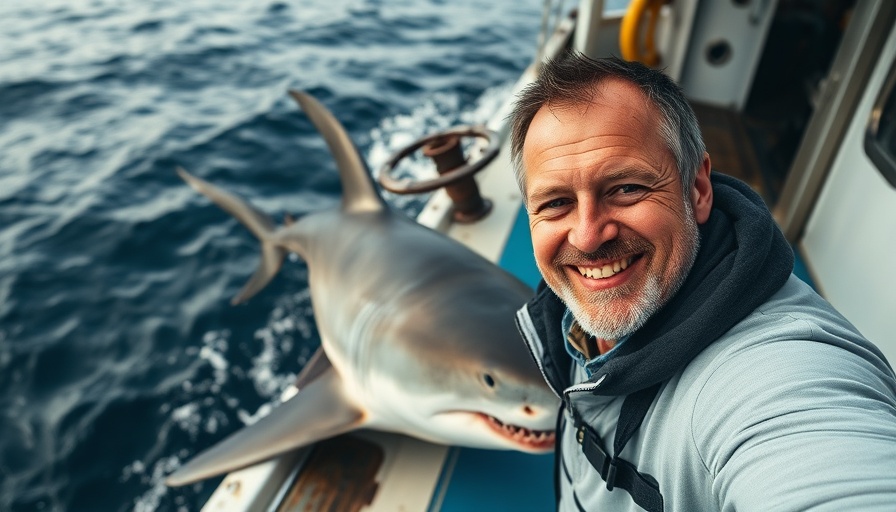
The Impact of Mary Lee: A Game-Changer for Shark Conservation
In the world of marine biology, few stories resonate as profoundly as that of Mary Lee, a white shark that altered the course of shark research and conservation. Originally tagged by the research organization OCEARCH off the coast of Massachusetts, her story began during a time of uncertainty for the organization. After losing significant funding, OCEARCH was struggling to continue its pioneering shark research efforts. The stakes were high—they needed to ignite public interest to secure their future.
In 'Mary Lee - The White Shark That Changed Everything!', the discussion dives into the remarkable journey of a single shark, exploring key insights that sparked deeper analysis on our end.
From Struggle to Success: The Journey of Tagging Mary Lee
On a challenging mission to Cape Cod, OCEARCH scientists encountered a colossal white shark navigating through turbulent waters. The tension was palpable as they attempted to tag her, fearing that this would be their last shot at making a significant breakthrough. With teamwork and determination, Captain Brett made a remarkable move by hooking Mary Lee, leading to a thrilling capture that had gathered the attention of the local community and media. This pivotal moment not only marked the first white shark tagging in the area but also symbolized hope for OCEARCH's survival.
Mary Lee's Awakening: Reviving Global Interest in Sharks
After her release back into the ocean, Mary Lee became a beacon for shark enthusiasts and researchers alike. By pinging her location frequently, she showcased the geographical movement of white sharks, even venturing close to urban areas like Jacksonville Beach. This unexpected behavior shattered misconceptions around the species and spurred a global conversation on their conservation status. The public’s awe transformed into advocacy, highlighting the urgent need to protect these ancient creatures.
The OCEARCH Effect: How One Shark Revitalized Conservation Efforts
Mary Lee's journey became a focal point for both scientists and the media, leading to a surge in support for OCEARCH's innovative approaches. Thanks to her, interest in shark conservation grew exponentially, educating the public on the vital role sharks play in ocean ecosystems. Viewed as indicators of ocean health, their presence—or absence—reveals significant truths about marine environmental changes.
In a time when shark populations were dwindling due to overfishing and habitat loss, Mary Lee embodies the resilience and strength of a species that is often misunderstood. Her story is a reminder of the interconnectedness of marine life and the importance of sustainable practices to protect these majestic animals for future generations.
As we celebrate her impact, we must ask ourselves: What can we do to support ongoing conservation efforts? Through awareness, advocacy, and responsible behavior, we can contribute to a brighter future for sharks and our oceans.
 Add Row
Add Row  Add
Add 




Write A Comment